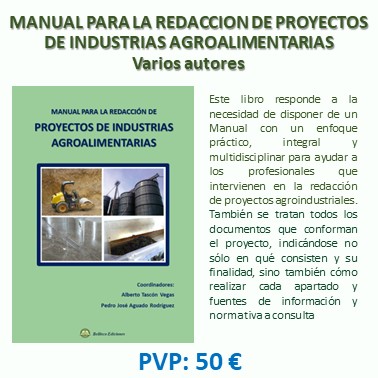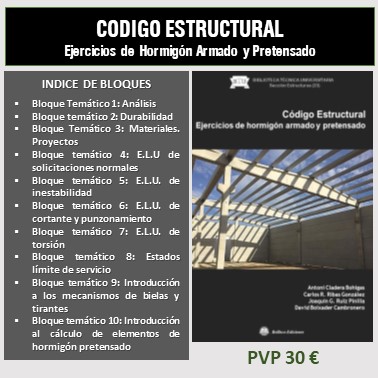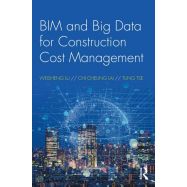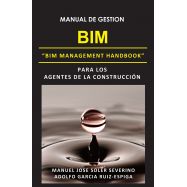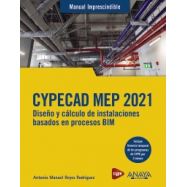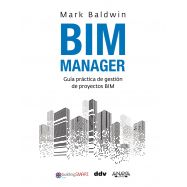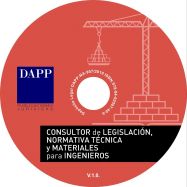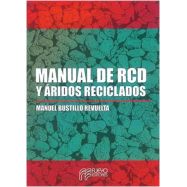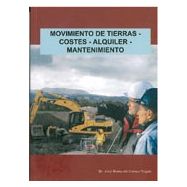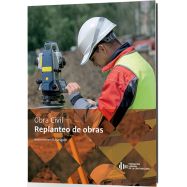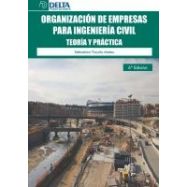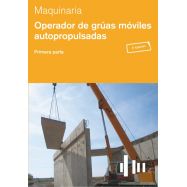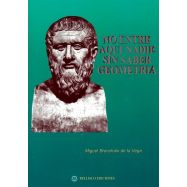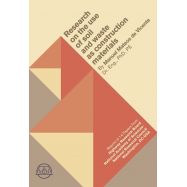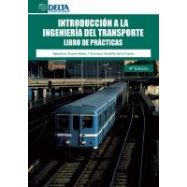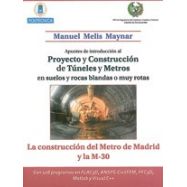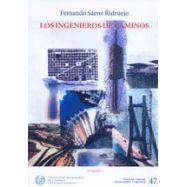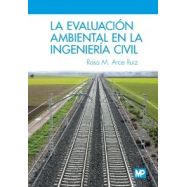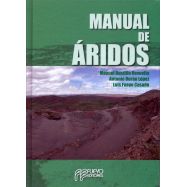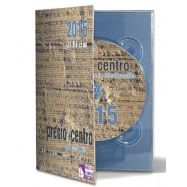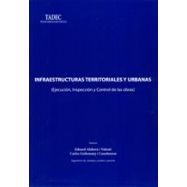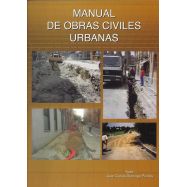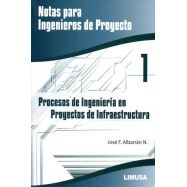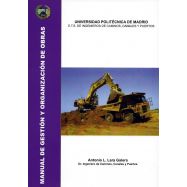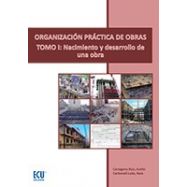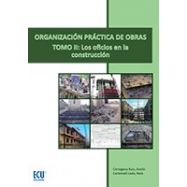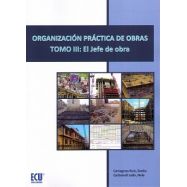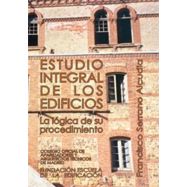Ningún producto
Materias
- BELLISCO EDICIONES. Nuestro Fondo Editorial
- FONDOS EDITORIALES EN DISTRIBUCION
- LIBROS TECNICOS EN INGLES
- ARQUITECTURA - URBANISMO
- AUTOMOCION - MOTORES - VEHICULOS
- AVIONICA - AERONAUTICA
- CALIDAD - EMPRESARIALES - GESTION
- CIENCIAS EXACTAS - MATEMATICAS
- CIENCIAS NATURALES Y APLICADAS
- CIENCIAS DE LA TIERRA - INGENIERIA DEL SUELO
- DICCIONARIOS TECNICOS
- ESTRUCTURAS - CONSTRUCCION
- FORMACION PROFESIONAL
- HIDRAULICA - INGENIERIA SANITARIA - AGUAS
- INGENIERIA CIVIL - OBRAS PUBLICAS
- INGENIERIA MECANICA E INDUSTRIAL
- INSTALACIONES . GENERALES, EN EDIFICACION E INDUSTRIALES
- MATERIALES
- MEDIO AMBIENTE
- NORMATIVA
- OPOSICIONES
- PREVENCION DE RIESGOS LABORALES
- PROGRAMAS INFORMATICOS DE CALCULO
- TECNOLOGIA DE LOS ALIMENTOS: Industrias: Conservación, envasado y cadenas alimentarias
- TELECOMUNICACIONES - INFORMATICA - TECNOLOGIA DE LA INFORMACION
- OUTLET DE BELLISCO: Descuentos de hasta el 80%
- RELIGION, TEOLOGIA, MORAL Y ESPIRITUALIDAD
- VARIOS
- OFERTAS
- PROMOCIONES
- NEWSLETTER
- CATEGORIAS DESTACADAS
- ULTIMAS NOVEDADES BELLISCO
- ARQUITECTURA SOSTENBILE
- URBANISNO
- MATEMATICAS EN GENERAL
- AGRONOMOS-AGRICULTURA-FORESTALES
- ELECTROMAGENTISMO-ELECTRONICA-ELECTRICIDAD
- INGª Y MECÁNICA DEL SUELO. CIMENTACIONES
- TOPOGRAFIA, FOTOGRAMETRÍA, GEODESIA
- EDIFICACION
- ANALISIS DE ESTRUCTURAS, RESISTENCIA DE MATERIALES, ELASTICIDAD, CALCULO MATRICIAL
- OFICIOS VARIOS
- ABASTECIMIENTO Y DISTRIBUCION DE AGUA
- PUENTES
- TUNELES Y OBRAS SUBTERRANEAS
- MAQUINAS Y MECANISMOS
- SOLDADURA
- CLIMATIZACION
- INSTALACIONES DE AGUA
- INSTALACIONES ELECTRICAS CIENCIA E INGENIERIA DE MATERIALES
- ENERGIAS RENOVABLES
- DESARROLLO SOSTENIBLE
- INFORMATICA-SISTEMAS-FORMACION-PROGRAMAS
-
BIM TEACHING AND LEARNING HANDBOOK. Implementation for Students and Educators
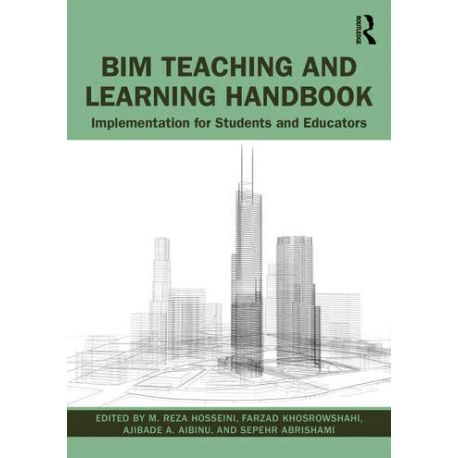 Ver más grande
Ver más grande Referencia: Código 10969
Marzo de 2023 - M. Reza Hosseini.. - Refª 10969
M. Reza Hosseini, Farzad Khosrowshahi, Ajibade Aibinu, Sepehr Abrishami
Marzo de 2023 Páginas: 370 Edición en tapa blanda
Código 10969 ISBN/EAN: 9781032034720
DESCRIPTION:
This book is the essential guide to the pedagogical and industry-inspired considerations that must shape how BIM is taught and learned. It will help academics and professional educators to develop programmes that meet the competences required by professional bodies and prepare both graduates and existing practitioners to advance the industry towards higher efficiency and quality.
To date, systematic efforts to integrate pedagogical considerations into the way BIM is learned and taught remain non-existent. This book lays the foundation for forming a benchmark around which such an effort is made. It offers principles, best practices, and expected outcomes necessary to BIM curriculum and teaching development for construction-related programs across universities and professional training programmes. The aim of the book is to:
- Highlight BIM skill requirements, threshold concepts, and dimensions for practice;
- Showcase and introduce tried-and-tested practices and lessons learned in developing BIM-related curricula from leading educators;
- Recognise and introduce the baseline requirements for BIM education from a pedagogical perspective;
- Explore the challenges, as well as remedial solutions, pertaining to BIM education at tertiary education;
- Form a comprehensive point of reference, covering the essential concepts of BIM, for students;
- Promote and integrate pedagogical consideration into BIM education.
This book is essential reading for anyone involved in BIM education, digital construction, architecture, and engineering, and for professionals looking for guidance on what the industry expects when it comes to BIM competency.
TABLE OF CONTENTS:
Section 1-1: Foundations and threshold concepts
1. Foundational concepts for BIM
Rafael Sacks and Ergo Pikas
2. BIM technologies, tools, and skills
Hamid Abdirad and Carrie Sturts Dossick
3. Understanding BIM to translate it into action
Cenk Budayan and Yusuf Arayici
4. Collaboration in BIM-based construction networks
Bimal Kumar and Benny Raphael
Section 1-2: BIM applications
5. Towards adopting 4D BIM in construction management curriculums: A teaching map
Faris Elghaish, Sepehr Abrishami, Salam Al-Bizri, Saeed Talebi, Sandra Matarneh, and Song Wu
6. Cost management-based BIM: Skills, implementation, and teaching map
Faris Elghaish, Saeed Talebi, and Song Wu
7. Building information modelling for facilities management: Skills, implementation, and teaching map
Sandra Matarneh and Faris Elghaish
8. BIM, sustainability and energy optimization
Zeynep Işık, Yusuf Arayici, Hande Aladağ, Gökhan Demirdöğen, and Farzad Khosrowshahi
9. BIM for safety planning and management
Sambo Zulu, Allen Wan, Farzad Khosrowshahi, and Mark Swallow
Section 1-3: Advanced discussions
10. Understanding BIM information management processes through international BIM standards
Mohammad Alhusban
11. Scholarship of BIM and construction law: Myths, realities, and future directions
Oluwole Alfred Olatunji and Abiola Akanmu
12. Interoperability and emerging smart technologies
Gökhan Demirdöğen, Zeynep Işık, Yusuf Arayici, and Hande Aladağ
13. BIM and ethics
Nicholas Nisbet
SECTION 2: FOR EDUCATORS AND TRAINERS
14. BIM teaching and learning frameworks in construction-related domains: What the literature says
Reza Taban, Mohsen Kalantari, and Elisa Lumantarna
15. Educating the "T-shaped" BIM professional: Lessons from academia
Igor Martek, Wei Wu, Mehran Oraee, and M. Reza Hosseini
16. Developing digerati leaders: Education beyond the building information modelling (BIM) ecosystem
Eleni Papadonikolaki
17. Incorporating collaborative problem solving (CPS) principles in BIM education
Abbas Mehrabi Boshrabadi, Mehran Oraee, Igor Martek, and M. Reza Hosseini
18. BIM education assessment: Guidelines for making it authentic
Abbas Mehrabi Boshrabadi, Mehran Oraee, Igor Martek, and M. Reza Hosseini
19. Using gamification and competitions to enhance BIM learning experience
Ajibade A. Aibinu, Teo Ai Lin Evelyn, Juan S. Rojas-Quintero, M. Reza Hosseini, Chiranjib Dey, Reza Taban, and Tayyab Ahmad
20. An Australian consolidated framework for BIM teaching and learning
Sas Mihindu and Professor Farzad Khosrowshahi
M. Reza Hosseini is currently the associate head of school (research) at the School of Architecture and Built Environment, Deakin University; a research fellow of the Centre for Research in Assessment and Digital Learning (CRADLE); and the founder and leader of the Australian BIM Academic Forum (ABAF). He had 12 years of experience working in various areas of the construction industry prior to joining the academic world. His main research and teaching areas are building information modelling (BIM) and digital engineering, and he has written around 190 published papers and book chapters.
Farzad Khosrowshahi is dean of the College of Engineering and Science at Victoria University, Melbourne, and Fellow of the Chartered Institute of Building. He is the founder of the BIM Academic Forum, Information Visualisation Society, and Uniting Construction Information. Farzad has previously served as the director of Construct IT, chair of ARCOM (Association of Researchers in Construction Management), and chair of IV Society. He has served on a number of committees including The European Council for Construction Research, Development and Innovation, buildingSMART UK, and the Construction Industry Council Research & Innovation.
Ajibade A. Aibinu is an associate professor at the Faculty of Architecture, Building and Planning, The University of Melbourne, Australia, where he was the Assistant Dean, Research Training. His research interests cut across the built environment project and asset management, from design and construction to operations, particularly data-driven processes to ensure value for money. He is the founder of Intelligent Cost Manager, a cloud-based cost-management solution that leverages deep learning and predictive modelling to generate cost estimates with greater accuracy using historical data. Ajibade is a member of the Australian Institute of Quantity Surveyors and was previously an associate of the Chartered Institute of Arbitrators (2008–2013).
Sepehr Abrishami is a BIM programme leader and senior lecturer in the School of Civil Engineering and Surveying at the University of Portsmouth, UK. He has carried out extensive research in the field of BIM, automation in design and construction, and environmental design. His areas of expertise include building information modelling (BIM), generative and parametric evolutionary design, artificial intelligence (AI), digital design and construction, integrated design, design for manufacturing and assembly (DfMA), offsite manufacturing, Big Data, blockchain, Internet of Things (IoT), and IT integrated architectural design.
Descripción
Este libro es la guía esencial para las consideraciones pedagógicas e inspiradas en la industria que deben dar forma a cómo se enseña y aprende BIM. Ayudará a académicos y educadores profesionales a desarrollar programas que cumplan con las competencias requeridas por los organismos profesionales y preparen tanto a los graduados como a los profesionales existentes para hacer avanzar la industria hacia una mayor eficiencia y calidad.
Hasta la fecha, los esfuerzos sistemáticos para integrar consideraciones pedagógicas en la forma en que se aprende y enseña BIM siguen siendo inexistentes. Este libro sienta las bases para formar un punto de referencia en torno al cual se realiza tal esfuerzo. Ofrece principios, mejores prácticas y resultados esperados necesarios para el plan de estudios y el desarrollo de la enseñanza BIM para programas relacionados con la construcción en universidades y programas de formación profesional. El objetivo del libro es:
- Resalte los requisitos de habilidades de BIM, los conceptos de umbral y las dimensiones para la práctica;
- Mostrar e introducir prácticas probadas y lecciones aprendidas en el desarrollo de planes de estudio relacionados con BIM de parte de educadores líderes;
- Reconocer e introducir los requisitos básicos para la educación BIM desde una perspectiva pedagógica;
- Explorar los desafíos, así como las soluciones correctivas, relacionados con la educación BIM en la educación terciaria;
- Formar un punto de referencia integral, que cubra los conceptos esenciales de BIM, para los estudiantes;
- Promover e integrar la consideración pedagógica en la educación BIM.
Este libro es una lectura esencial para cualquiera involucrado en la educación BIM, la construcción digital, la arquitectura y la ingeniería, y para los profesionales que buscan orientación sobre lo que la industria espera en lo que respecta a la competencia BIM.
Tabla de contenido
Sección 1-1: Fundamentos y conceptos de umbral
1. Conceptos fundamentales para BIM
Rafael Sacks y Ergo Pikas
2. Tecnologías, herramientas y habilidades BIM
Hamid Abdirad y Carrie Sturts Dossick
3. Comprender BIM para traducirlo en acción
Cenk Budayan y Yusuf Arayici
4. Colaboración en redes de construcción basadas en BIM
Bimal Kumar y Benny Rafael
Sección 1-2: Aplicaciones BIM
5. Hacia la adopción de 4D BIM en los planes de estudios de gestión de la construcción: un mapa didáctico
Faris Elghaish, Sepehr Abrishami, Salam Al-Bizri, Saeed Talebi, Sandra Matarneh y Song Wu
6. BIM basado en la gestión de costes: mapa de competencias, implementación y enseñanza
Faris Elghaish, Saeed Talebi y Song Wu
7. Modelado de información de construcción para la gestión de instalaciones: mapa de habilidades, implementación y enseñanza
Sandra Matarneh y Faris Elghaish
8. BIM, sostenibilidad y optimización energética
Zeynep Işık, Yusuf Arayici, Hande Aladağ, Gökhan Demirdöğen y Farzad Khosrowshahi
9. BIM para la planificación y gestión de la seguridad
Sambo Zulu, Allen Wan, Farzad Khosrowshahi y Mark Swallow
Sección 1-3: Discusiones avanzadas
10. Comprender los procesos de gestión de información BIM a través de estándares BIM internacionales
Mohammad Alhusban
11. Beca de BIM y derecho de la construcción: Mitos, realidades y rumbos futuros
Oluwole Alfred Olatunji y Abiola Akanmu
12. Interoperabilidad y tecnologías inteligentes emergentes
Gökhan Demirdöğen, Zeynep Işık, Yusuf Arayici y Hande Aladağ
13. BIM y ética
nicolas nisbet
SECCIÓN 2: PARA EDUCADORES Y FORMADORES
14. Marcos de enseñanza y aprendizaje BIM en ámbitos relacionados con la construcción: lo que dice la literatura
Reza Taban, Mohsen Kalantari y Elisa Lumantarna
15. Educar al profesional BIM en forma de T: lecciones del mundo académico
Igor Martek, Wei Wu, Mehran Oraee y M. Reza Hosseini
16. Desarrollar líderes digerati: educación más allá del ecosistema de modelado de información de construcción (BIM)
Eleni Papadonikolaki
17. Incorporar principios de resolución colaborativa de problemas (CPS) en la educación BIM
Abbas Mehrabi Boshrabadi, Mehran Oraee, Igor Martek y M. Reza Hosseini
18. Evaluación de la educación BIM: pautas para hacerla auténtica
Abbas Mehrabi Boshrabadi, Mehran Oraee, Igor Martek y M. Reza Hosseini
19. Utilizar la gamificación y los concursos para mejorar la experiencia de aprendizaje BIM
Ajibade A. Aibinu, Teo Ai Lin Evelyn, Juan S. Rojas-Quintero, M. Reza Hosseini, Chiranjib Dey, Reza Taban y Tayyab Ahmad
20. Un marco australiano consolidado para la enseñanza y el aprendizaje de BIM
Sas Mihindu y el profesor Farzad Khosrowshahi
TAMBIEN LE PUEDE INTERESAR
- 93,00 €
- 33,25 €
- 29,95 €
- 24,95 €

